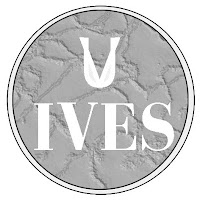The
International Value Exchange Society (IVES) would administer a
standard numbering system for all accredited Independent Exchanges
(IE's) in the Value Exchange Network (VEN). These local nodes of the
network have all agreed to use the international standard Value Unit
as their unit of trade. Each Value Unit Exchange Note bill will
feature numbers on both sides that must match. There will be an array
of numbers like this: 0-00-0000. The
first number will represent a continent, largest to smallest, so Asia
is 1, Africa 2, etc. The second two numbers represent the country
code. Countries are numbered as they are alphabetically listed. The
final four represent the number of IE's within each country. Each IE
gets a number first come, first served. We've given enough space for
up to 9,999 IE's represented in four digits within each country. We
can't imagine there would be that many. Should that number ever need
to grow beyond that astronomical estimate, we can switch to
hexadecimal notation. One country, Russia, is given a number for
their territories in Europe and another for their territories in
Asia. Some small islands in the Caribbean and elsewhere are the
direct possession of countries in Europe or elsewhere and therefore
any IE's that would be established there would fall under the
numbering for the home country.
Here
are the codes for the continents and countries. You determine who
will be first in your own country to open an IE there.
David
Burton
1
ASIA (45 countries)
01
Afghanistan
02
Bahrain
03
Bangladesh
04
Bhutan
05
Brunei
06
Burma (Myanmar)
07
Cambodia
08
China
09
East Timor
10
India
11
Indonesia
12
Iran
13
Iraq
14
Israel
15
Japan
16
Jordan
17
Kazakhstan
18
Korea, North
19
Korea, South
20
Kuwait
21
Kyrgyzstan
22
Laos
23
Lebanon
24
Malaysia
25
Maldives
26
Mongolia
27
Nepal
28
Oman
29
Pakistan
30
Philippines
31
Qatar
32
Russian Federation
33
Saudi Arabia
34
Singapore
35
Sri Lanka
36
Syria
37
Tajikistan
38 Taiwan
38 Taiwan
39
Thailand
40 Turkey
41
Turkmenistan
42
United Arab Emirates
43
Uzbekistan
44
Vietnam
45
Yemen
[3/6/18: Should Korea unite, they would get 18 hence 1-18 would be
[3/6/18: Should Korea unite, they would get 18 hence 1-18 would be
2
AFRICA (54 countries)
01
Algeria
02
Angola
03
Benin
04
Botswana
05
Burkina
06
Burundi
07
Cameroon
08
Cape Verde
09
Central African Republic
10
Chad
11
Comoros
12
Congo
13
Congo, Democratic Republic of
14
Djibouti
15
Egypt
16
Equatorial Guinea
17
Eritrea
18
Ethiopia
19
Gabon
20
Gambia
21
Ghana
22
Guinea
23
Guinea-Bissau
24
Ivory Coast
25
Kenya
26
Lesotho
27
Liberia
28
Libya
29
Madagascar
30
Malawi
31
Mali
32
Mauritania
33
Mauritius
34
Morocco
35
Mozambique
36
Namibia
37
Niger
38
Nigeria
39
Rwanda
40
Sao Tome and Principe
41
Senegal
42
Seychelles
43
Sierra Leone
44
Somalia
45
South Africa
46
South Sudan
47
Sudan
48
Swaziland
49
Tanzania
50
Togo
51
Tunisia
52
Uganda
53
Zambia
54
Zimbabwe
3
NORTH AMERICA (23 countries)
01
Antigua and Barbuda
02
Bahamas
03
Barbados
04
Belize
05
Canada
06
Costa Rica
07
Cuba
08
Dominica
09
Dominican Republic
10
El Salvador
11
Grenada
12
Guatemala
13
Haiti
14
Honduras
15
Jamaica
16
Mexico
17
Nicaragua
18
Panama
19
Saint Kitts and Nevis
20
Saint Lucia
21
Saint Vincent and the Grenadines
22
Trinidad and Tobago
23
United States
4
SOUTH AMERICA (12 countries)
01
Argentina
02
Bolivia
03
Brazil
04
Chile
05
Colombia
06
Ecuador
07
Guyana
08
Paraguay
09
Peru
10
Suriname
11
Uruguay
12
Venezuela
5
EUROPE (48 countries)
01
Albania
02
Andorra
03
Armenia
04
Austria
05
Azerbaijan
06
Belarus
07
Belgium
08
Bosnia and Herzegovina
09
Bulgaria
10
Croatia
11
Cyprus
12
Czechia
13
Denmark
14
Estonia
15
Finland
16
France
17
Georgia
18
Germany
19
Greece
20
Hungary
21
Iceland
22
Ireland
23
Italy
24
Latvia
25
Liechtenstein
26
Lithuania
27
Luxembourg
28
Macedonia
29
Malta
30
Moldova
31
Monaco
32
Montenegro
33
Netherlands
34
Norway
35
Poland
36
Portugal
37
Romania
38
Russian Federation
39
San Marino
40
Serbia
41
Slovakia
42
Slovenia
43
Spain
44
Sweden
45
Switzerland
46
Ukraine
47
United Kingdom
48
Vatican City
6
OCEANIA (14 countries)
01
Australia
02
Fiji
03
Kiribati
04
Marshall Islands
05
Micronesia
06
Nauru
07
New Zealand
08
Palau
09
Papua New Guinea
10
Samoa
11
Solomon Islands
12
Tonga
13
Tuvalu
14
Vanuatu


